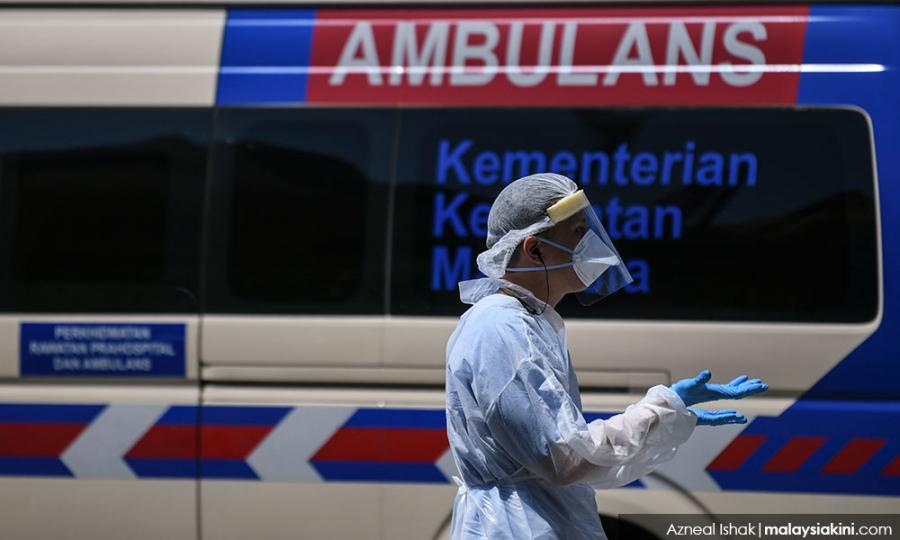
Published by New Straits Times, image from New Straits Times.
The novel coronavirus or Covid-19 has become one of the biggest threats to the world. However, there is one thing that is rarely discussed — how this disease impacts people psychologically.
SARS (Severe Acute Respiratory Syndrome) infected over 8,000 people and killed roughly 770 people worldwide between 2002 and 2003.
Studies found that while SARS patients have recovered physically, some suffered a psychological breakdown.
Roughly 50 per cent of the recovered patients battle with an anxiety disorder while 20 per cent are struggling with insomnia and depression.
Some have even reported ailments similar to Post-Traumatic Stress Disorder (PTSD), where they cannot forget the painful time when they were fighting the disease, and these painful memories have disrupted their daily activities. The medication for SARS such as ribavirin and corticosteroid have side effects.
Although “cured” of SARS, the patients who took the drugs suffered hair loss, major memory impairment, concentration impairment and depression.
These side effects caused a medical practitioner who had recovered from SARS in Hong Kong to attempt suicide, as he was unable to earn a living anymore.
SARS patients are not the only victims as the disease spreads through society.
The family members of the infected patients were psychologically affected the most, especially the children who faced similar problems to SARS patients, including depression, insomnia, anxiety and phobia.
Now, let’s talk about the psychological impact of Covid-19 where around 7,900 patients have died as of March 18 this year.
The disease has infected nearly 200,000 people worldwide. Thus, similar implications are expected soon, if not already.
For those who have lost their loved ones due to the disease, they are going through guilt and sadness.
Children who have lost their parents are still unable to fully understand the gravity of the current outbreak.
They are growing up without a complete family structure and this would potentially lead to psychological challenges in their lives.
An important element we should not forget are the medical practitioners on the frontline.
During the Wuhan lockdown, many medical practitioners experienced burnout which is to be expected as it was a stressful time.
As we are currently under the Movement Control Order, many employees will also be experiencing stress and anxiety.
Some employers have also decided to force their employees to take unpaid leave. This has undoubtedly caused stress to the employees as well as employers as they have to maintain business continuity amid the outbreak.
Many live from pay cheque to pay cheque so they cannot afford to take unpaid leave.
Without their salary, they can barely feed themselves let alone their families.
Prolonged stress is bad for mental and physical health. It can also impact their working ability in the future. Mental health practitioners can offer online counselling, consultation or tips on how to relieve stress.
For children, close family and friends play a big role in guiding and helping them through this rough patch.
Finally, to avoid a big spike in infected patients who will overwhelm our healthcare system, we need to comply with the MCO.
Stay home, go out only if it is necessary, practise social distancing and no gatherings please.
Jamari Mohtar and Chia Chu Hang are part of the research team at EMIR Research, an independent think tank focused on strategic policy recommendations based on rigorous research.

